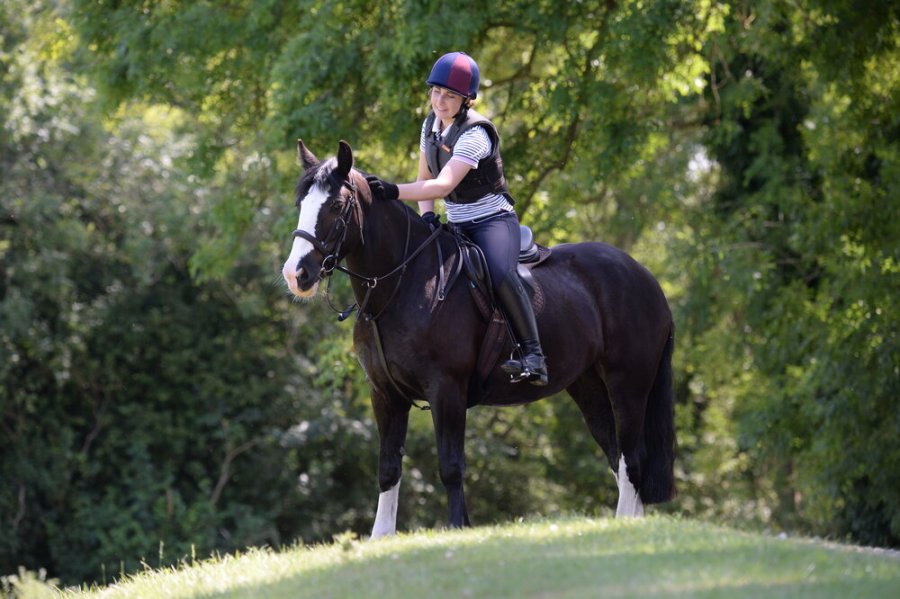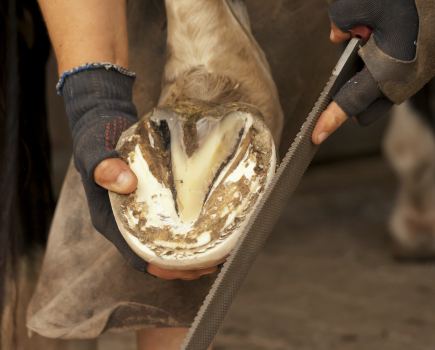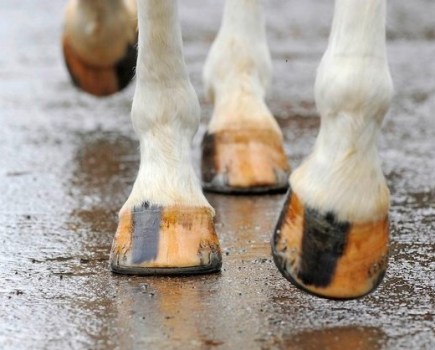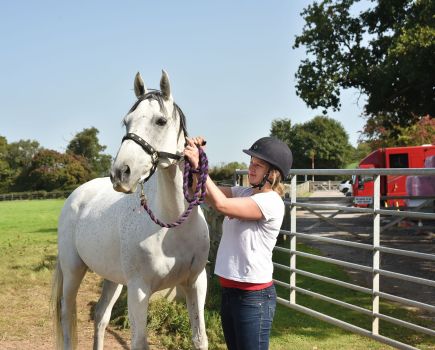It’s absolutely ok to have doubts about whether your horse is the right one for you. There are so many things to think about when buying a new horse that it’s easy to make a mistake, especially when emotions get in the way. Even experienced riders can get it wrong.
Always remember that there is a horse to suit everyone – which, of course, means that your mismatched partner will be a fantastic horse for someone else. Here, international eventer Sharon Hunt shares her thoughts on partnerships that just aren’t working.
Reasons for a mismatch
“I regularly see horses and riders that aren’t really made for each other,” says Sharon. “One of the most common reasons is that the horse doesn’t suit the needs or expectations of the rider.”
It may be the case that the rider is confident, determined and competitive, but their horse doesn’t have the ability to match.
“Some horses need pushing along, while others are like Ferraris and need chilling out. Think about what sort of horse suits your riding style best,” adds Sharon. “I’m always amazed at how many children are trying to cope with sharp horses or ponies who are clearly not suitable. It’s the same with novice or unconfident adults – they are not going to enjoy a whizzy, temperamental partner.”
The other common issue is behaviour. Perhaps the horse rushes their fences, refuses, or won’t go forwards. They might nap, rear, bolt or be a committed spooker.
“You need to ask yourself if you’ve got the experience and confidence to deal with any behaviour they throw at you, as well as the skills to retrain them,” says Sharon. “It takes times and patience to work out what sort of horse suits you best, but no horse is worth getting hurt over.”
It’s also important to consider why your horse might be behaving the way they are. It could be that they’re in pain. Get a vet to assess the situation and advise you. Help from an equine behaviourist will also be useful in assessing their future.
Spotting the signs
One of the most obvious signs that your horse is not for you is if you don’t enjoy riding them and get anxious at the prospect of getting on. You might be spending more time on groundwork or lungeing than riding, or are asking other people to ride them instead. They could be the sweetest horse to handle – and loveable, too – but if riding is what you want to do, then it’s time to re-evaluate.
“I had to lunge Tankers Town before I rode him for the first six months due to him being over-girthed in the past,” says Sharon. “It took that long for me to be able to get on, but I knew he’d be good once we’d got through this, and I had the skills, experience and back-up to cope with him.”
Try riding another horse who is more suited to your confidence levels and skills – a riding school will have something suitable. Do you enjoy it? If yes, it’s not your love of riding that’s waned, it’s the love of riding your own horse.
Why it’s hard to give them up
“When it comes to unsuitable horses, pride often gets in the way of owners making sensible decisions,” says Sharon. “Some riders just won’t give up. There may be peer pressure to have a particular horse, or they want to prove any doubters wrong, but these situations don’t generally end well for anyone.”
Finance can often be a sticking point too.
“Sometimes it seems more cost effective to hang on to what you’ve got than to buy another horse, so you can try to make a go of it instead. But the longer you keep the horse, the more money is wasted. It can often be better to cut your losses, even if it means having a break while you save up again.”
Then comes emotional attachment.
“So much time and effort goes into our horses and we quickly become emotionally attached. They’re not just a horse, but our friend too, and we pour all our love into making sure they have the best life,” says Sharon. “So, when things don’t work out, it’s heartbreaking and it can take a lot of courage to let them go. Some people keep hold of an unsuitable horse for years, but never truly enjoy riding, if they ride at all.”
If in doubt, ask your trainer
“I think that trainers should be honest quite quickly about what they are seeing in front of them,” says Sharon. “If I can see that the person is never going to be able to ride the horse, or that they’re not good enough for what the rider wants to do, then I’d say so – as tactfully as I can, of course. My role is to maximise the combination’s potential. Without being able to progress forwards with the client, I would feel that they should save their money, or even spend it with an alternative coach.”
If you lack confidence in riding your horse, remember that it’s not you, it’s the horse.
“Some riders just don’t have a lot of confidence. This is fine as long as they have the right, well-behaved, confidence-giving horse,” adds Sharon. “If the horse is too much of a handful, then it’s not the rider’s fault. They’re just on the wrong horse. It seems, though, that some people will go to extreme lengths to forgive the horse anything, to the detriment of their own enjoyment and sometimes safety.”
Moving on…
“If your horse isn’t right for you, the best thing you can do is pass them on – as long as they’re sound and not dangerous, of course,” says Sharon. “Think about their welfare. If you’re not enjoying riding them, they’re probably not enjoying it very much either. Horses blossom when they find the right match and being in the wrong hands can be as stressful for your horse as it is for you.”
If you don’t want to sell them, and you don’t need the money to buy a new horse, then loaning them is an option. Remember, though, that a loan horse can be returned at any time, which may not be the outcome you want.
“To avoid being paired with the wrong horse again, get as much help as you can with the process,” advises Sharon. “Buy from someone with a strong reputation and have someone experienced to help you. They should be up to speed with what you need – and what you can cope with.
“Always have the horse vetted, although in my view they don’t need to pass with flying colours. Your new horse just needs to be fit and sound enough for whatever it is you’d like to do with them.”
Meet the expert: Eventer Sharon Hunt has ridden at the very top, including at the Olympics, World Equestrian Games, Burghley and Badminton. When she’s not riding or producing her own horses, she’s busy coaching and running clinics and camps at her amazing facilities in Suffolk. Her horse, Tankers Town, was one of the best in the world.
Check out our subscription offer









